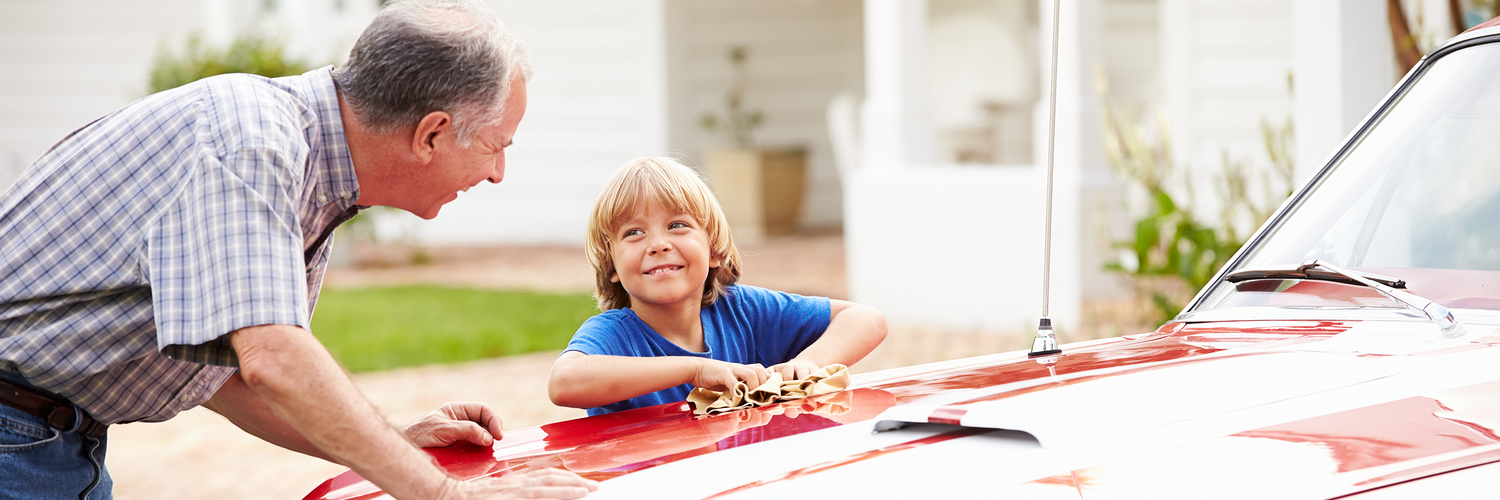Classic Car Insurance in Massachusetts
Classic car insurance is a form of auto insurance that’s tailored to the specific insurance needs of classic cars. Classic auto insurance policies are meant to protect the value of a classic car, it’s important to accurately determine the insured car’s value.
All residents who have a classic car may want to consider getting a classic auto policy. These kinds of insurance policies often provide the best protection for classic cars. They also may be more affordable than other auto policies, because they take into account how much (or little) classic cars are typically driven.
Personal Injury Protection (PIP)
Bodily Injury Liability Coverage
Property Damage Liability Coverage
Comprehensive and Collision Coverage
What is Classic Car Insurance?
Classic car insurance is a form of auto insurance that’s tailored to the specific insurance needs of classic cars. These vehicles are typically driven less than most cars, and they’re worth more. Classic auto insurance policies take both of these factors into account.
How Are Classic Cars Valued?
Because classic auto insurance policies are meant to protect the value of a classic car, it’s important to accurately determine the insured car’s value. Figuring out how much a classic car is worth takes more research than determining the value of a modern vehicle, because there are fewer comparisons to draw on and classic car’s values tend to be high.
Nevertheless, there are several ways to determine how much a classic car might be worth. An insurer might consider or request:
- Recent sale prices of any comparable vehicles
- An evaluation done by a respected third-party appraiser
- The final bid for a similar vehicle that sold at auction
Additionally, an insurer may want documentation attesting to the condition of a classic car, and receipts for any parts or service that was done to the vehicle. Both of these can have a large impact on a car’s value.
Owners who want more information on what the value of their automobile may be can take it to one of the classic car shows in Boston, MA, West Springfield, MA, Springfield, MA, or North Andover, MA.
Get a Free Quote!
What is the Difference Between Stated Value and Agreed Value Classic Auto Insurance?
Classic auto insurance policies can be categorized into stated value policies and agreed value ones. Stated value policies generally insure vehicles for their fair-market value, which the methods listed above seek to determine. Agreed value policies insure a vehicle for up to a particular value that’s agreed on by both parties in advance.
Classic car owners who want to insure cars for more than their fair-market value may look for an agreed value policy. The policy’s premiums may be a little higher, as they’ll be based upon the agreed upon value, but owners can usually determine how much coverage they want for their classic car regardless of what the market suggests it’s worth.
Who Should Get Classic Auto Insurance?
All Massachusetts residents who have a classic car may want to consider getting a classic auto policy. These kinds of insurance policies often provide the best protection for classic cars. They also may be more affordable than other auto policies, because they take into account how much (or little) classic cars are typically driven.

How Can Classic Car Owners in Massachusetts Get a Classic Auto Policy?
Classic car owners in Massachusetts who want to explore their insurance options should contact an independent insurance agent who helps people with auto insurance. Most auto insurance agents will be able to explain the differences between classic car insurance policies and standard auto policies, and they can help owners look for a policy that’s right for their classic automobile.
What Coverages Does Classic Auto Insurance Offer?
Classic auto insurance policies generally make available many of the coverages that standard auto insurance policies have, as well as some coverages and protections that usually aren’t found in standard policies.
Some of the coverages that are normally found in both classic and standard auto insurance policies include:
- Personal Injury Protection (PIP)
- Bodily Injury Liability Coverage
- Property Damage Liability Coverage
- Comprehensive and Collision Coverage
- Uninsured and Underinsured Motorist Coverage
A few coverages and other protections that are usually unique to classic auto policies are:
- Guaranteed Value Coverage, which normally eliminates depreciation from consideration when valuing the insured vehicle
- Flexible Usage, which normally removes any mileage restrictions
- 24/7 Emergency Roadside Service for Collectible Cars, which normally guarantees a flatbed tow truck that has soft straps if towing is needed
The additional protections like these aren’t major factors for drivers of newer vehicles. For the classic car owner, however, it’s reassuring to know your vehicle is insured for its full value and will be properly cared for if it breaks down.
What Should Drivers Look for When Selecting a Classic Auto Insurance Policy?
It’s, of course, important to evaluate a classic auto insurance policy’s coverages and premiums when selecting a policy. These aren’t the only factors to consider, though. The company offering the policy also ought to play a major role in the decision to purchase a policy.
Should you ever have to file a claim on your classic auto policy, you’ll receive the best service if you purchase a policy from a company that specializes in classic policies (as opposed to standard policies. A specialized insurance provider will probably offer:
- Lower premiums than come with standard auto policies
- Representatives who are familiar with classic vehicles
- A parts-finding service should your vehicle need a rare part
Additionally, some classic auto insurance providers give back to the community by donating to organizations like the Historic Vehicle Association and RPM Foundation.


How Can Residents in Massachusetts Get Classic Auto Insurance?
For help finding Classic Auto insurance in Massachusetts, contact the independent insurance agents at Scotti Insurance Agency. Our agents can request architect policies from multiple insurance companies in the state on your behalf, and they have the expertise needed to help you determine which one is best for your situation.

